Writing
Talk for Writing
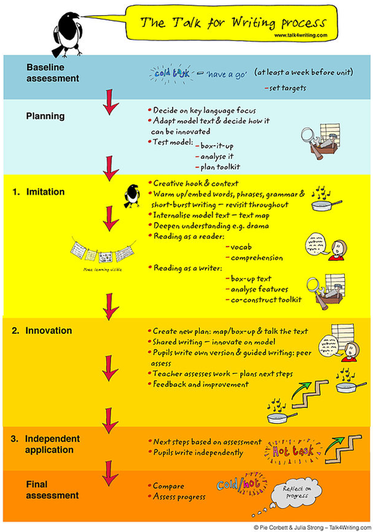
At St Mary’s Primary School, we want all our children to develop into thoughtful readers and creative writers, and it is through the Talk for Writing approach that we believe we can achieve this. Through its multisensory and interactive teaching, it enables children of all ages and abilities to learn to write a wide range of story/text types using various methods, including:
Listening to and learning texts and stories;
Taking part in dramas and role-plays;
Drawing and story mapping;
Collecting words and language strategies
Co-constructing toolkits to draw upon to effectively write for different purposes
Building their working knowledge of grammar.
Applying learning in Short Burst Writing tasks
Talk for Writing is embedded in every phase of the teaching sequence, which is structured to include teacher talk, supported pupil talk and independent pupil talk. We believe that Talk for Writing is an approach that goes beyond the development of children’s general speaking and listening skills – it allows children to explore the processes involved in being a writer and extends oral rehearsal so that it becomes a draft for their written pieces. The approach helps children to move from talk into writing.
Genre Mapping
We believe that it is essential for children to experience a broad range of reading and writing genres and they progress through their literacy journey. To ensure that the children in St Mary’s are accessing a broad range of rich and engaging genres, we have mapped out the progression in each year group. From EYFS to Year 6, pupils experience a range of genres that are also revisited.
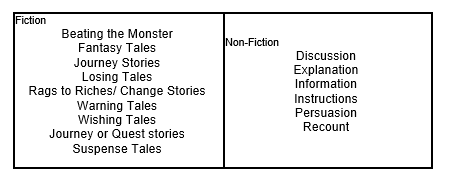
The Writing Toolkits
Everyday Toolkits.
Every year group has an everyday toolkit that pupils aspire to during all writing activities.
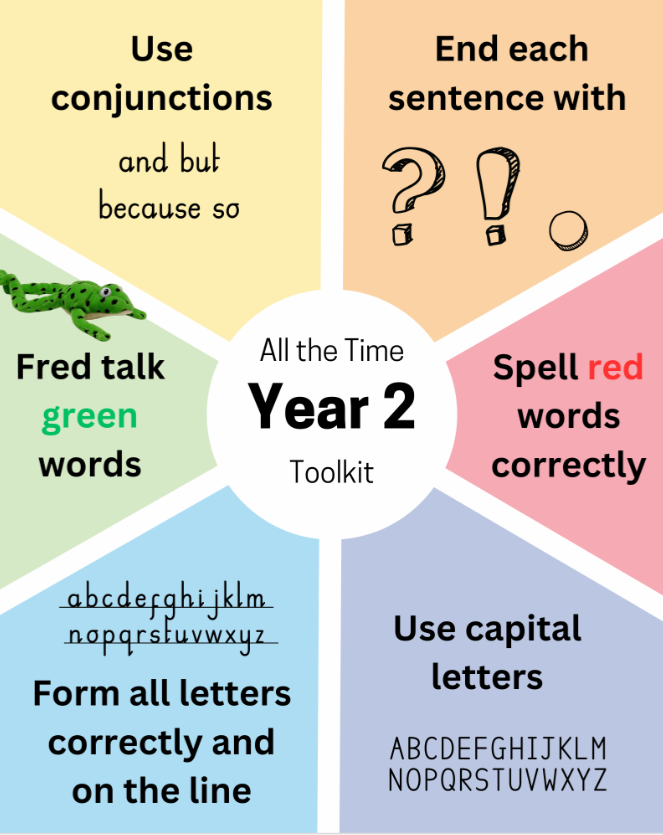
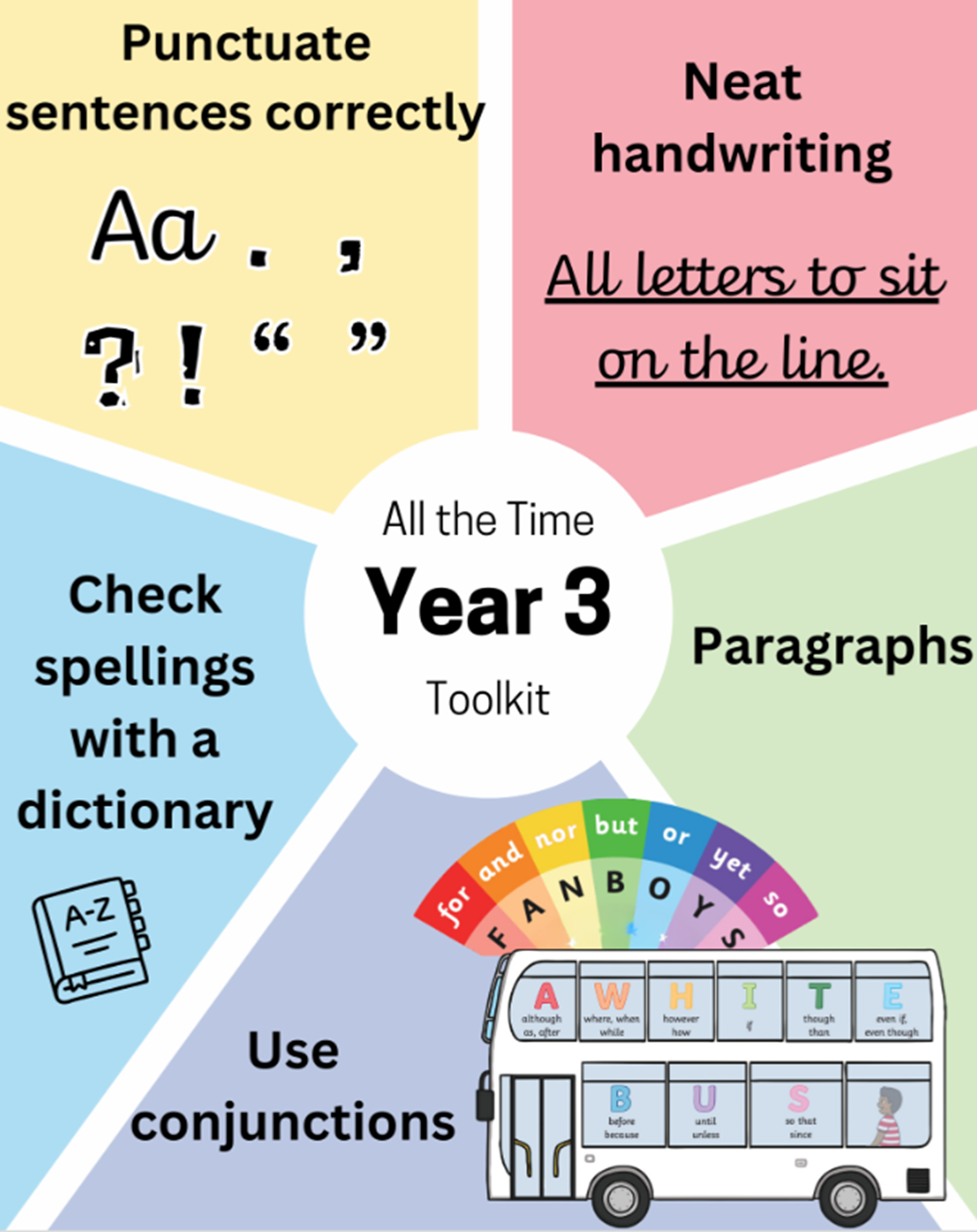
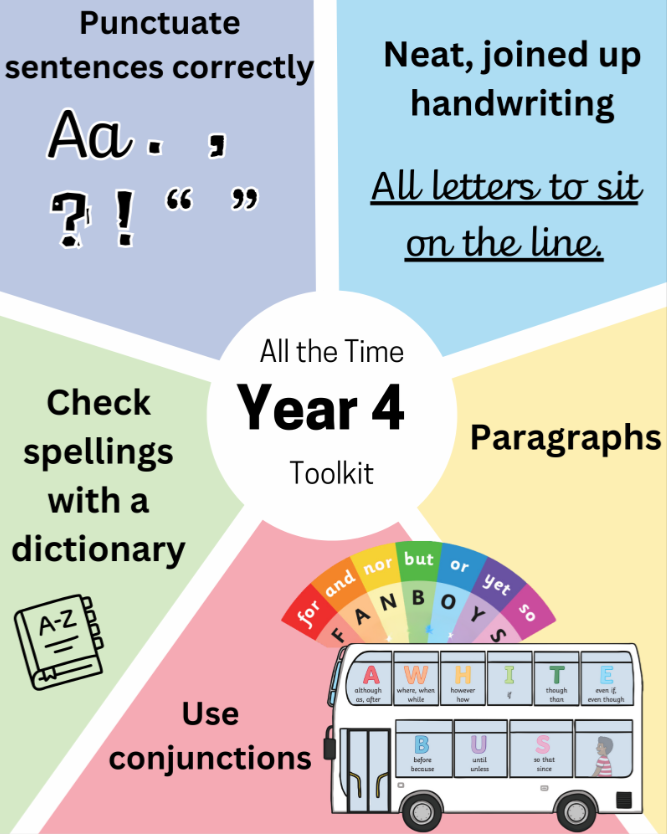
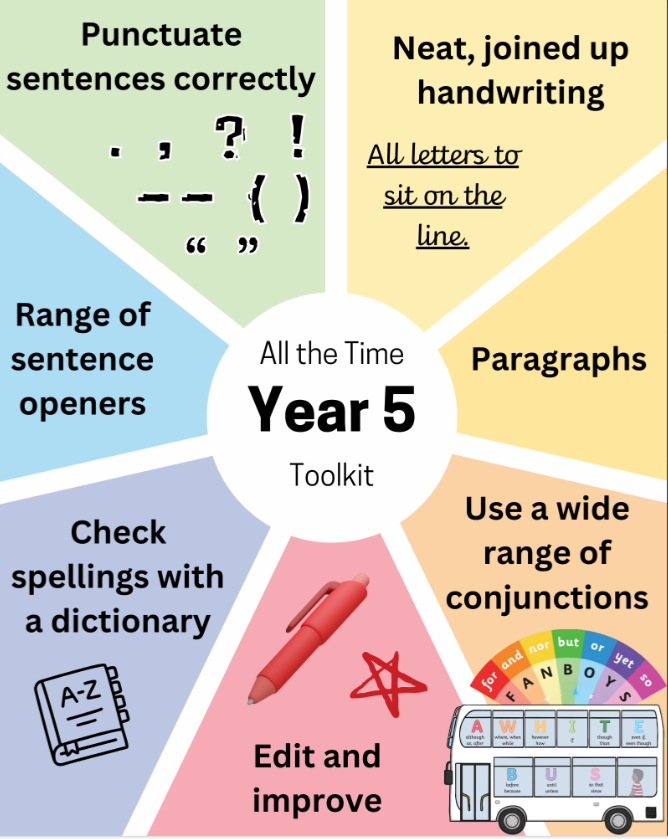
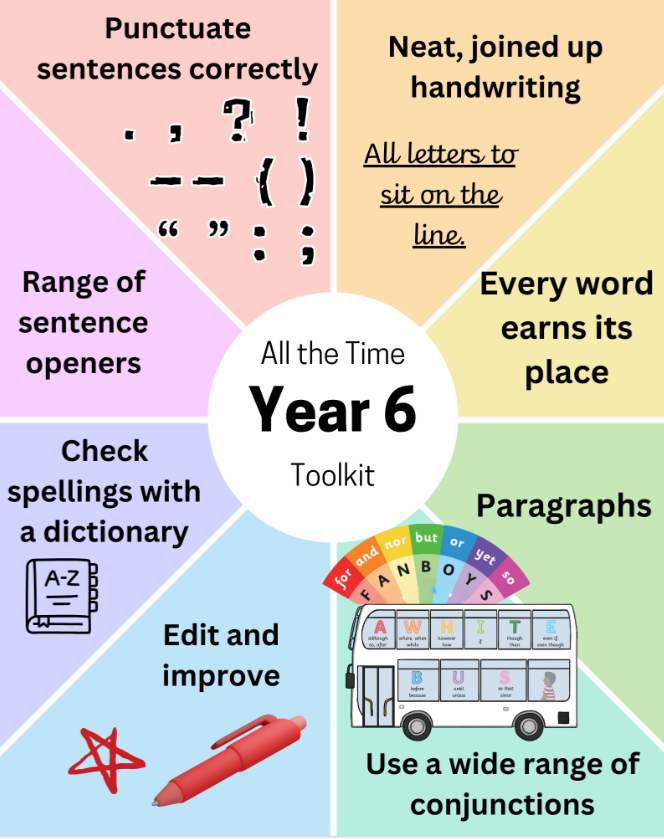
To support our writing and as part of our Talk for Writing process, children analyse a Model Text through 'Reading as a Writer' to understand some of the language choices that have been made to affect the reader. We use this analysis to co-construct a Writing Toolkit, which can be used to support our own writing. The tools on the toolkit are practised in 'Short Burst Writing', 'Shared Writing' and then applied to our 'Independent Application of writing'. The toolkits include a language feature, the impact of that feature and an example. This leads to boxing up the text which supports both innovation and independent.
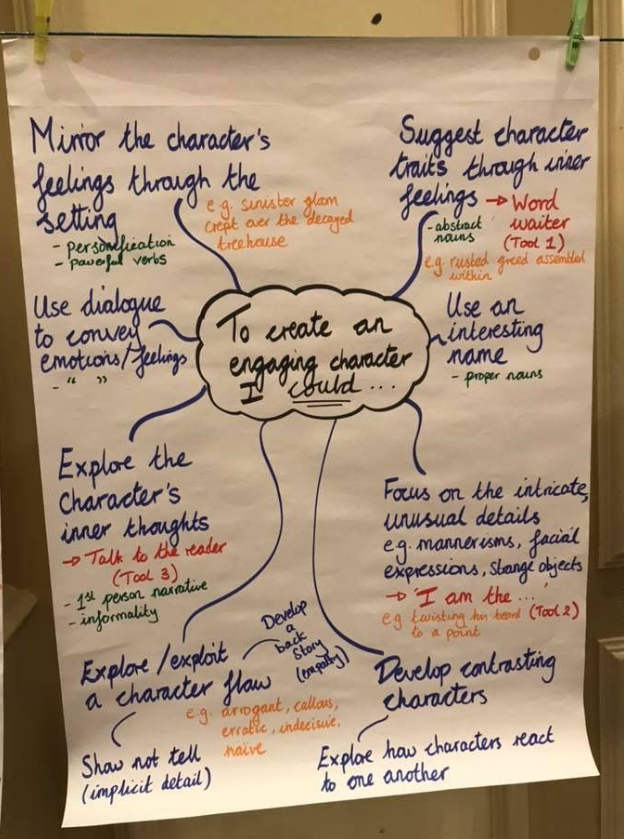
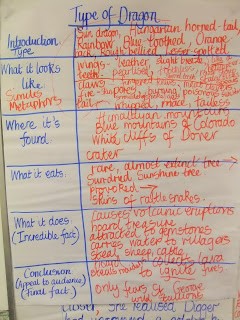
Fiction (7 Key Story Features) |
Non-Fiction (6 main purposes of non-fiction) |
|
|
Progress in Writing at St Mary’s Primary School
Through the use of our genre coverage and Writing Toolkits, we ensure that children are exposed to the full National Curriculum for Composition, Transcription, Grammar and Punctuation plus that little bit extra to really enhance our writing. Have a look at the documents below to see how writing progresses in line with the National Curriculum as children progress on their writing journey at St Mary's.
Progression in Writing at St Mary's Primary School (Click to view)
Progression of composition, grammar and Punctuation Transcription (Click to view)
Writing is one of our main forms of communication, and it is a natural extension of speech. Through the development of our speaking and listening opportunities and our reading provision, pupils are enabled to show case the language they have learnt. Through the development of our reading provision, the pupils’ exposure to a wide range of literature and discussion around literature, the writing content will become a natural progression.
St Mary's Writing Ambassador


